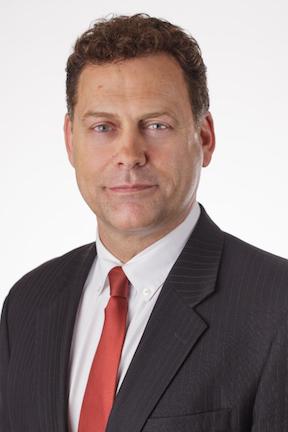Consolidated Chassis Management executive believes meeting capacity needs requires collaboration and enhanced communication
Jan 30, 2020One of the shipping industry’s best opportunities for meeting the challenges of an adequate chassis supply is the carriers’ capabilities to provide accurate and timely information on containers leaving the busiest foreign ports for the United States, such as imports from China.
Michael Wilson, CEO of Consolidated Chassis Management LLC, (CCM) noted as part of the evolution of the South Atlantic Consolidated Chassis Pool (SACP) receives accurate information 21 days out for North and South Carolina and the Georgia Ports Authority. The SACP relies on this information as well as forecasting technology its developed to properly plan, prepare and manage inventory. CCM believes this forecasting contributes the pool’s high levels of efficiency and productivity.

Wilson, who brought a nearly 40-year career in ocean shipping marine and logistics operations to CCM when he joined the neutrally managed interoperable gray chassis pool firm last year, noted “cargo volume spikes can be mitigated by stakeholders taking collaborative actions and decisions as they did with Hurricane Dorian, one of the most powerful hurricanes recorded in the Atlantic Ocean that struck the East Coast of North America last summer. Without such cooperation, the cargo gridlock would have been impossible,” he said.
He said that if spikes hit two–to-three times the anticipated volumes “there may not be a reasonable way to meet that kind of volume.” But he did add that metering the cargo is an option rather than dispatching large volumes to inland markets that may not have the ability to handle them at once.
Wilson discussed these issues recently at a port productivity forum. CCM operates neutrally managed interoperable gray pools whereby shared assets can be interchanged freely and possibly stored off-dock, at terminals and rail yards to provide the ability of chassis to move freely in terms of start and stop locations. This model offers optimized interoperability and supply chain efficiency, said Mike Wilson.
He added that the interoperable pool benefits from a neutral manager with the ability to move and secure business from one chassis provider to another without having to move assets. The neutral manager business model allows a user a single point of contact, impartial and transparent control with uniform road-ready chassis and an open competition environment.
Sometimes overlooked, a chassis is a pivotal piece of equipment in the supply chain. A shortage of chassis, trucks and drivers combined with the ongoing need to reposition all three to meet cargo ebbs and flows--sometimes over great distances—is a major import/export challenge, said Wilson.
Similar Stories

Import Cargo could surge ahead of potential port strike and Trump tariffs
View Article
Port of Hamburg: International cooperation between ports on green issues
View Article
Port of Hueneme: A Dynamic Look at Growth, Innovation, and the Future Shared at the 2024 “State of the Port”
View Article
Simons new COO of Port of Rotterdam Authority
View Article
Wilson Sons certifies an unprecedented reduction of up to 55% in greenhouse gas emissions from Santa Clara Container Terminal cargo operations
View Article
Charleston maritime partners calling on community to help fill shipping container with toys for SC foster children
View ArticleGet the most up-to-date trending news!
SubscribeIndustry updates and weekly newsletter direct to your inbox!





